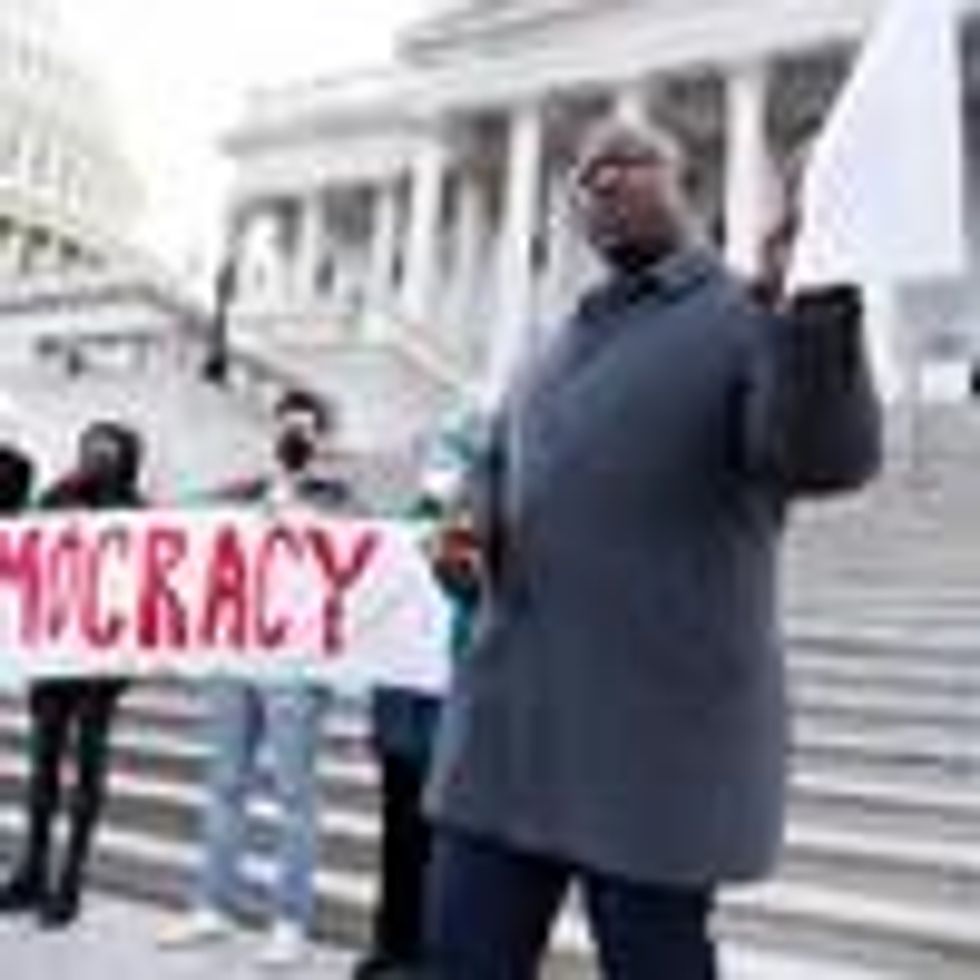Dozens of U.S. civil society groups sent a letter Monday to top advisers of President Joe Biden explaining how his administration can have a "successful" year of action between his December "Summit for Democracy" and a forthcoming event planned for late 2022.
"This upcoming year presents an opportunity for the United States to engage in self-reflection, learn from global experiences, and take bold action to demonstrate accountability."
More than 80 organizations came together for the letter--addressed to Susan Rice, Biden's domestic policy adviser, and Jake Sullivan, the president's national security adviser, but also shared with 10 other key members of his administration.
Emphasizing the coalition's goal to "support democratic renewal at home and abroad," the letter states that this year should reflect not just U.S. "international leadership on the issues of democracy and human rights, but also a robust effort domestically to implement new policies and live up to commitments already made that address the summit's three pillars: strengthening democracy, fighting corruption, and promoting human rights."
"The extent to which the U.S. government works with its own civil society to craft and implement meaningful domestic commitments and demonstrate tangible steps toward a more democratic, transparent, and rights-respecting government and society will enhance the United States' credibility as a voice for democratic renewal internationally," the letter continues.
Biden's 2021 summit notably came as federal lawmakers and the White House were failing to pass pro-democracy legislation intended to combat a "tidal wave" of voter suppression efforts by GOP state policymakers that experts warn will continue ahead of this year's midterms.
Earlier this month, right-wing Democratic Sens. Joe Manchin (W.Va.) and Kyrsten Sinema (Ariz.) joined with the Senate GOP to block a sweeping House-approved voting rights bill; though the pair claimed to back the legislation, they refused to change the filibuster to enable the proposal to advance with simple-majority support.
Meanwhile, former President Donald Trump's "Big Lie" about the 2020 election and the resulting attack on the U.S. Capital last year have elevated worldwide concerns about the state of U.S. democracy, which one international think tank recently labeled as "backsliding."
Related Content
Democracy 'On the Line' Says Bowman After Protest Arrest
Julia Conley
The new letter says that "this upcoming year presents an opportunity for the United States to engage in self-reflection, learn from global experiences, and take bold action to demonstrate accountability for moments when we have failed to live up to our values at home and abroad."
The groups argue last year's event didn't adequately engage civil society.
"Many domestically focused groups, including state and local groups, that engage in areas relevant to summit themes, including racial justice, voting rights, and fiscal transparency, were either not aware that the summit was taking place, did not think the summit was relevant to their advocacy, or did not know how to engage with summit organizers," explains the letter.
The coalition--which includes the ACLU, the Leadership Conference on Civil and Human Rights, Oxfam America, and Public Citizen, American Civil Liberties Union--offers the administration five specific recommendations:
- Establish an interagency task force comprised of key domestic agencies to focus on the United States' domestic-facing commitments for the Summit for Democracy, including regular and meaningful consultation with civil society;
- Clarify the process for finalizing commitments and seek feedback from civil society on the United States' commitments from the Summit for Democracy;
- Publish all finalized government commitments, including those from the United States, in a public tracker;
- Provide periodic updates on U.S. commitment implementation and opportunities for engagement with civil society; and
- Incorporate U.S. civil society organizations as participants in global civil society working-group structure and engage civil society in the planning for the 2022 summit.
"2022 presents critical inflection points and significant opportunities to stem the tide of rising authoritarianism, to protect and promote universal human rights, and combat corruption," the letter adds. "Domestic and international components of the Summit for Democracy must not be viewed in silos, but rather as mutually reinforcing components of a year of global action."





